- News
- Reviews
- Bikes
- Accessories
- Accessories - misc
- Computer mounts
- Bags
- Bar ends
- Bike bags & cases
- Bottle cages
- Bottles
- Cameras
- Car racks
- Child seats
- Computers
- Glasses
- GPS units
- Helmets
- Lights - front
- Lights - rear
- Lights - sets
- Locks
- Mirrors
- Mudguards
- Racks
- Pumps & CO2 inflators
- Puncture kits
- Reflectives
- Smart watches
- Stands and racks
- Trailers
- Clothing
- Components
- Bar tape & grips
- Bottom brackets
- Brake & gear cables
- Brake & STI levers
- Brake pads & spares
- Brakes
- Cassettes & freewheels
- Chains
- Chainsets & chainrings
- Derailleurs - front
- Derailleurs - rear
- Forks
- Gear levers & shifters
- Groupsets
- Handlebars & extensions
- Headsets
- Hubs
- Inner tubes
- Pedals
- Quick releases & skewers
- Saddles
- Seatposts
- Stems
- Wheels
- Tyres
- Health, fitness and nutrition
- Tools and workshop
- Miscellaneous
- Cross country mountain bikes
- Tubeless valves
- Buyers Guides
- Features
- Forum
- Recommends
- Podcast
review
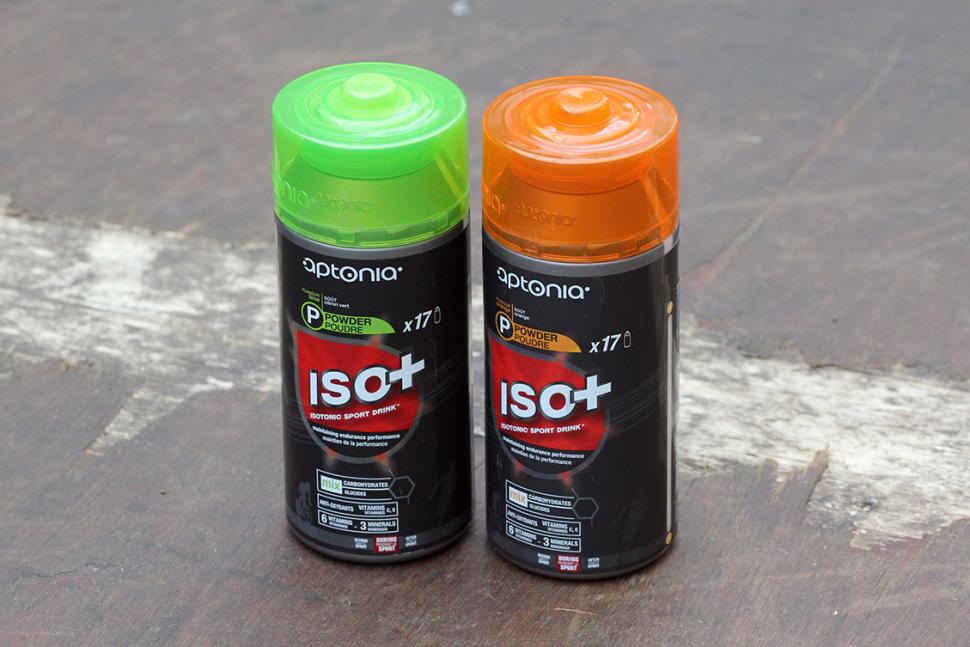 Aptonia ISO Isotonic Sport Drink
Aptonia ISO Isotonic Sport Drink£7.99
VERDICT:
Tasty, good value isotonic energy drink, suitable for longer efforts
Weight:
650g
Contact:
At road.cc every product is thoroughly tested for as long as it takes to get a proper insight into how well it works. Our reviewers are experienced cyclists that we trust to be objective. While we strive to ensure that opinions expressed are backed up by facts, reviews are by their nature an informed opinion, not a definitive verdict. We don't intentionally try to break anything (except locks) but we do try to look for weak points in any design. The overall score is not just an average of the other scores: it reflects both a product's function and value – with value determined by how a product compares with items of similar spec, quality, and price.
What the road.cc scores meanGood scores are more common than bad, because fortunately good products are more common than bad.
- Exceptional
- Excellent
- Very Good
- Good
- Quite good
- Average
- Not so good
- Poor
- Bad
- Appalling
Aptonia ISO+ energy drink is an isotonic formula that combines carbohydrates at a seven percent concentration with electrolytes to satisfy both energy and hydration needs while out on a ride.
The '+' in the name comes from the inclusion of a glucose-fructose mix in a 2:1 ratio (derived from sucrose) which has been shown by studies to increase the rate at which carbohydrates can be absorbed into the blood stream in the intestine. When only a single carbohydrate type is used, studies how shown that the rate of absorption is limited to around 60g of carbohydrate per hour, while the combination of carbohydrate types can push this up to around 80-90g per hour. This is because glucose and fructose use different intestinal transporters which can work in parallel to each other.
The benefit to the rider is that for longer events where the availability of glycogen is a limiting factor, being able to consume and, more importantly, absorb more carbohydrate per hour will improve performance. Furthermore, the increase in the rate of absorption should mean less chance of intestinal distress, an especially important consideration if the conditions are hot or if the event is very long.
In addition to the carbohydrate content, ISO+ also contains useful electrolytes to replace those lost in sweat, and some additional vitamins. Each 38g serving, or 500ml of energy drink if you want to think of it that way, contains 0.4g of sodium, 304mg of potassium and 2mg of zinc. The sodium content in particular is quite high compared to other sports drinks which should benefit the salty sweaters.
When scanning through the ingredients list, the two that stand out in a negative way are E110 in the orange flavour, and E102 (also known as tartrazine) in the lime flavour. Both are used in a whole multitude of nutritional products, but may cause allergic reactions in people with aspirin intolerance, and have also been associated with hyperactivity disorders in children.
However, all that science is no good if the drink isn't appetising in the first place as it's just going to end up staying in the bottle. By this measure, both the orange and lime flavours score well and I never felt sick of them even on rides where I consumed up to two litres of the mix. Mixed at the recommended seven percent concentration, the lime flavour is the more subtle of the two which could perhaps make it a better choice for the really hot days, but the orange flavour was equally as palatable. Both flavours mix well with water so there are no issues with residue at the bottom of a bottle, or of the concentration increasing as you get through a bottle.
Not surprisingly given it's a Decathlon product, the ISO+ drink is pretty good value as each 650g tub (the equivalent of 17x500ml bottles) can be had for £7.99, making it cheaper than most similar offerings from the more established nutrition brands on a cost/mass basis.
Verdict
Tasty, good value isotonic energy drink, suitable for longer efforts.
road.cc test report
Make and model: Aptonia ISO+ Isotonic Sport Drink
Size tested: Lime and Orange
Tell us what the product is for, and who it's aimed at. What do the manufacturers say about it? How does that compare to your own feelings about it?
Due to its glucose-fructose mixture in a 2:1 ratio, ISO+ is suited for longer events where glycogen availability is a limiting factor in performance.
Tell us some more about the technical aspects of the product?
Weight: 650g = 17x500ml bottles
Ingredients:
Sucrose, maltodextrin, dextrose, acidifiers: E330 and E331 (iii), orange/lime natural flavour, potassium chloride, sodium chloride, natural flavour and stabiliser: E445, vitamin B1, B2 B3, B6, C and E, colouring agent E110, zinc sulfate.
Disclaimer/Potential contamination:
Made in a factory which handles: gluten, shellfish, eggs, fish, soya, milk, celery, sulphites, molluscs, lupine, nuts. Orange olouring agent E110 may have adverse effects on the activity and attention of children.
Rate the product for performance:
7/10
2:1 glucose-fructose ratio should boost carbohydrate absorption in the intestine, making it useful for longer events. In terms of taste, both flavours are quite appetising and can be consumed in quite large quantities without getting sick of them.
Rate the product for value:
8/10
Very good value which undercuts most of the competition which use similar glucose/fructose mixtures.
Did you enjoy using the product? Yes.
Would you consider buying the product? Yes.
Would you recommend the product to a friend? Yes.
About the tester
Age: 22 Height: 190cm Weight: 69kg
I usually ride: Canondale EVO Red My best bike is:
I've been riding for: Under 5 years I ride: Every day I would class myself as: Semi pro
I regularly do the following types of riding: road racing, time trialling, cyclo cross, commuting, mtb,
John has been writing about bikes and cycling for over 30 years since discovering that people were mug enough to pay him for it rather than expecting him to do an honest day's work.
He was heavily involved in the mountain bike boom of the late 1980s as a racer, team manager and race promoter, and that led to writing for Mountain Biking UK magazine shortly after its inception. He got the gig by phoning up the editor and telling him the magazine was rubbish and he could do better. Rather than telling him to get lost, MBUK editor Tym Manley called John’s bluff and the rest is history.
Since then he has worked on MTB Pro magazine and was editor of Maximum Mountain Bike and Australian Mountain Bike magazines, before switching to the web in 2000 to work for CyclingNews.com. Along with road.cc founder Tony Farrelly, John was on the launch team for BikeRadar.com and subsequently became editor in chief of Future Publishing’s group of cycling magazines and websites, including Cycling Plus, MBUK, What Mountain Bike and Procycling.
John has also written for Cyclist magazine, edited the BikeMagic website and was founding editor of TotalWomensCycling.com before handing over to someone far more representative of the site's main audience.
He joined road.cc in 2013. He lives in Cambridge where the lack of hills is more than made up for by the headwinds.
Latest Comments
- mdavidford 11 min 4 sec ago
I don't think there's anything natural about it....
- Blackthorne 11 min 45 sec ago
Not that I have any knife in this fight, but this sounds like lawyers finding new ways to enrich themselves under the guise of pretending to give...
- Blackthorne 19 min 19 sec ago
Here's an idea for you: two things can be true at once. Shock. The family is a bunch of censorious whiners, and, Rapha was flatly wrong.
- brooksby 20 min 40 sec ago
Its ridiculous, though: I do not for one moment believe that people drive onto Park Street and then park their car outside (or even, near) Woodes...
- Paul J 18 min 25 sec ago
The good olde beam type torque wrenches are cheaper and *much* more robust, no less accurate (least, at common bike tool price points), easier to...
- Steve K 25 min 13 sec ago
The OIadance open ear buds mentioned in this review don't seem to be available over here anymore. I killed my pair on a long ride last Thursday -...
- FionaJJ 1 hour 6 min ago
It's always worth remembering that very rarely does the person who writes the article also write the headline. This applies to a lot of fairly high...
- FionaJJ 1 hour 27 min ago
I'm sure there was some analysis done of supposed motorists' and anti -20mph Facebook groups in Wales and it turned out that the Admin were...
- eburtthebike 2 hours 24 min ago
I read a report last week which said that in most police force areas, drivers had exceeded 100mph in 30mph zones, so the problem of illegal,...
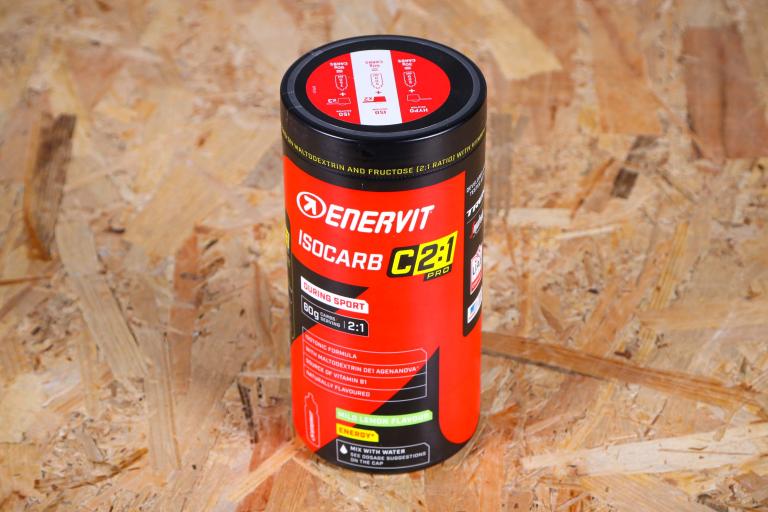
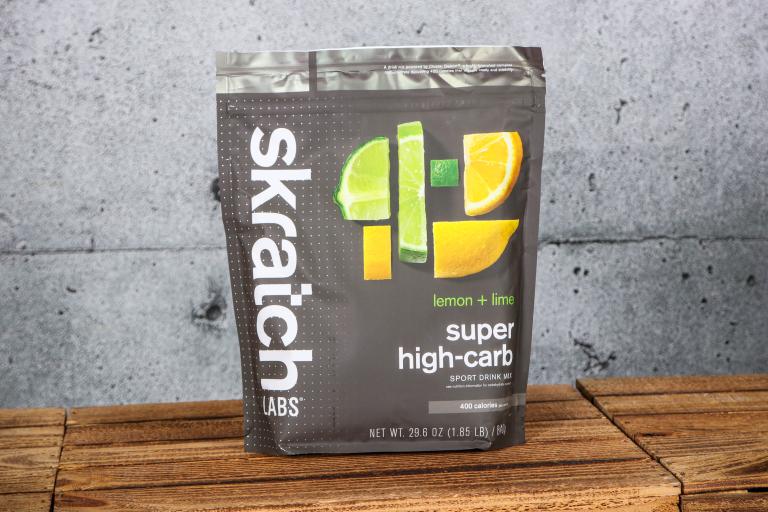
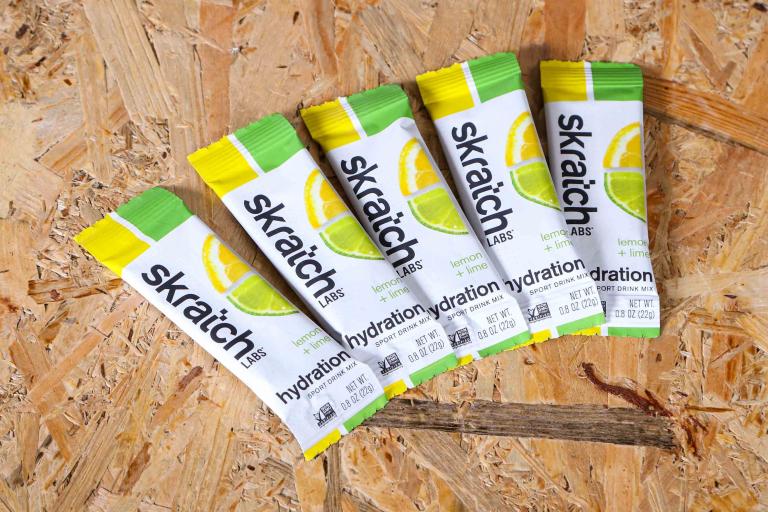
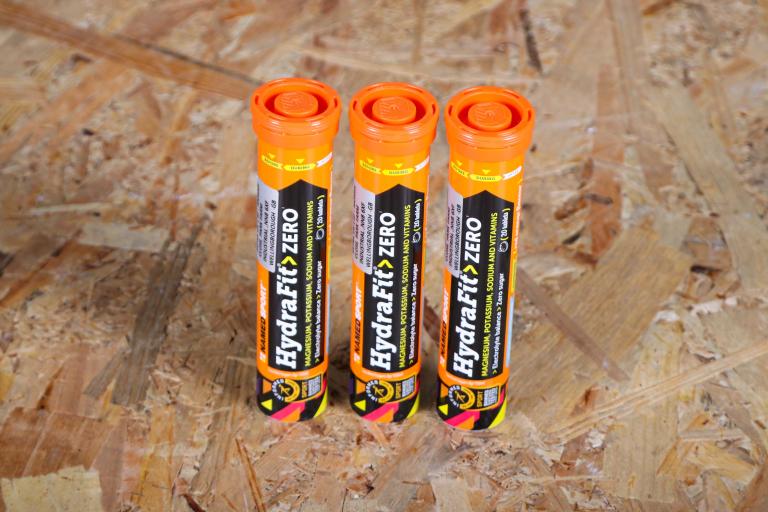
Add new comment
6 comments
This was the free energy product at the feed stations for the Tour of Flanders Sportive, and you were able to receive one of these 650g tubs in exchange for your rider number at the end.
It seemed to work well enough to me, I didn't have any issues with cramp or energy loss and the flavour wasn't sickly sweet.
The orange flavour I tried might be an acquired taste though. It kind of remind me of 'old school' orange squash before we knew what E numbers did to us! The vivid colour hints at what to expect from the taste and anyone sensitive to stronger tasting mixes (some asthmatics for example) might want to avoid.
You mean make our food more palatable and long-lasting, as well as generally enhancing our lives? I for one can't imagine going between meals without liberal consumption of E948.
Ah, seems I had the wrong Aptonia isotonic product on the Decathlon website.
My points still stand though. You're paying a *lot* of money for pretty much basic sugars, citric acid and salt (the K/Na mix "LoSalt" kind here).
Paul, I think you're reading the list from something else? My packet says:
sucrose, maltodextrin, dextrose, acidifiers: E330 and E331 (iii), potassium chloride, sodium chloride, natural lime flavouring, natural flavouring and stabiliser: E445, vitamins B1, B2, B3, B6, C and E, zinc sulphate, colouring agents E102 and E133
Certainly no glucose-fructose syrup - we don't really get that in UK, tends to be more a US thing as they have a corn industry to prop up.
Also, water? It's a powder!
Here's the ingredient list:
Glucose-fructose syrup, liquid sugar, water, acidifiers: E330 and E331 (iii), maltodextrin, sodium chloride, dextrose, vitamins B1, B2, B6, natural flavour, preservative: E202, colouring agent: E110.
They're asking £7.99 basically for syrup, sugar, citric acid (E331), maltodextrin, and dextrose. You can buy 650 g - hell even kilogrammes - of *each* of these ingredients for £7.99 *all together* elsewhere. Never mind the water...
Anyone paying £12 per kilogramme for these energy powders/syrups needs to read the ingredients list, then look in the shops or online at how much they cost individually and learn just how badly they're being fleeced.
Buy the ingredients and mix them yourself, for about 1/5th to 1/10th of the price!
Hell, one to four tea-spoons of honey or syrup (to taste), a shot of super-market own label fruit-concentrate, a pinch of salt (ideally the sodium/potassium mix "Lo-Salt" stuff), and half a tea-spoon to two of sodium bicarbonate (depending on how much you sweat and tolerance) in a large water bottle will work fine!
You can also buy citric acid from some super-markets - add just over half a tea-spoon for every tea-spoon of sodium bicarbonate, and it will make sodium citrate (note: if you also use citrus fruit concentrates, you'll nee to allow for the citric acid in those and want to reduce the amount of citric acid powder you put in, of course).
they had massive containers of this at the Ronde van Vlaanderen last week and I tried pretty much all of these flavours. The lemon one was a bit weird but the others were great. I'll definitely get some next time I go to Decathlon